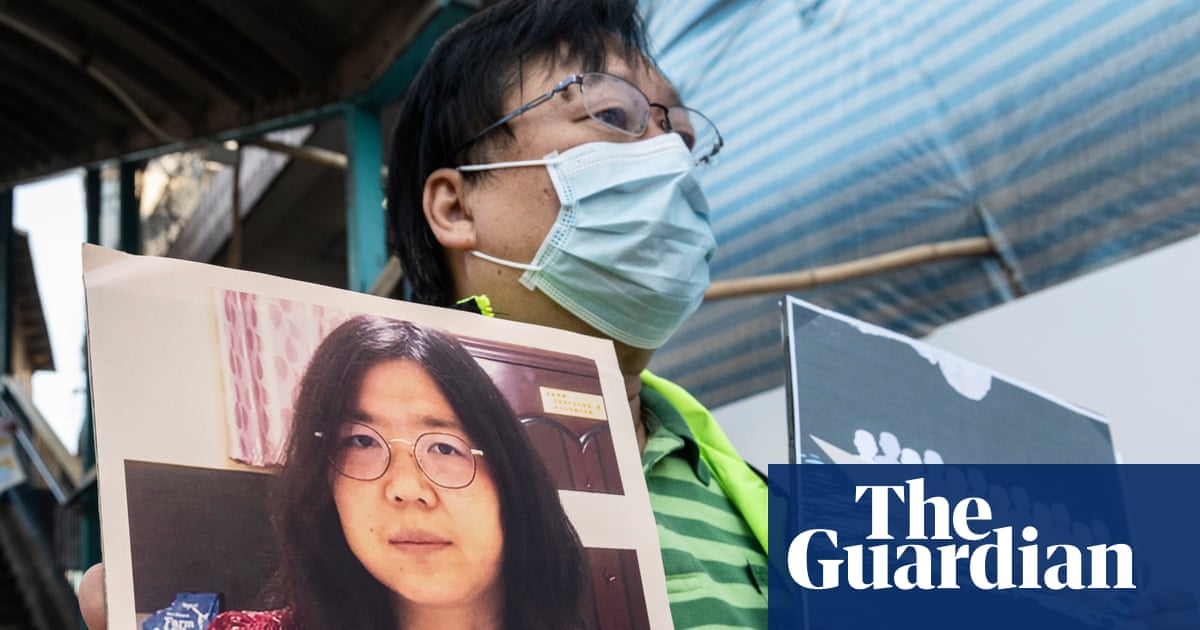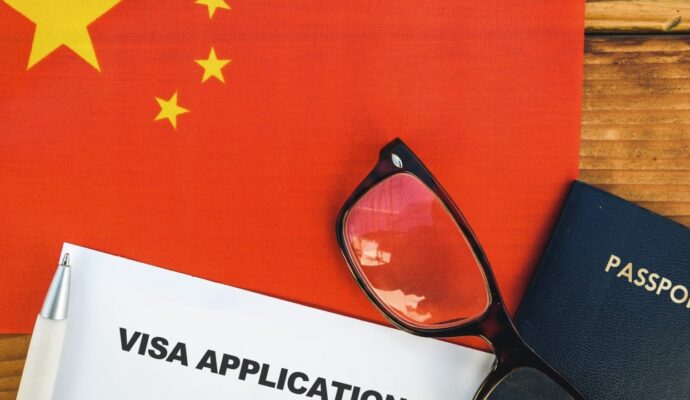
A Chinese citizen journalist who was jailed after reporting from the frontlines of the Covid-19 outbreak in Wuhan is to face trial for a second time, according to human rights activists and media freedom groups.
Zhang Zhan, who was released from prison in May 2024 after serving four years behind bars, is expected to go on trial on Friday at the Shanghai Pudong New Area people’s courtfor “picking quarrels and provoking trouble”, a catch-all term used to target government critics.
Antoine Bernard, a director of advocacy and assistance for Reporters Without Borders (RSF), a press freedom NGO, said Zhang’s trial this week was “not only prosecution, it’s persecution”.
Who is Zhang Zhan?
Zhang Zhan is a 42-year-old former lawyer and native of Shaanxi province. According to a biography published by supporters last year, Zhang converted to Christianity in 2015, and around that time she started speaking out publicly about human rights. In 2019 she was arrested in Shanghai after staging an anti-government protest.
In an interview that year, Zhang said: “I hope there’s a way to break the hostility between the people and the government.”
What did Zhang do?
In February 2020, Zhang travelled to Wuhan to document the Chinese government’s response to the start of the Covid-19 pandemic. She shared her reports on X, YouTube and WeChat. She criticised the authorities for restricting people’s freedom in the name of pandemic controls.
Her videos have been viewed more than 100,000 times and provided a rare glimpse into the early days of China’s harsh zero-Covid regime, which came to define the government’s approach to social control for the next three years.
What was the government’s response?
Zhang was arrested in May 2020 and later sentenced to four years in prison for “picking quarrels and provoking trouble”, a charge often used against activists. While in prison, Zhang went on periodic hunger strike to protest against her conviction and treatment. In 2021 she received an RSF press freedom award for courage.
Zhang was released from prison in May 2024 but faced restrictions on her movements, according to activists in her network.
What happened next?
Upon her release from prison, Zhang had limited contact with her supporters and is thought to have lived under close police surveillance, which is common practice for critics of government.
Zhang was detained again in August 2024, and formally arrested in November, again on charges of “picking quarrels and provoking trouble”. Her indictment mentioned posts on X and YouTube that “seriously damaged the country’s image”.
Prosecutors have recommended that she be sentenced to four to five years in prison.
Why has the Chinese government treated her so harshly?
The Chinese Communist party (CCP) treats any criticism of its rule extremely harshly. Dissidents or ordinary people who express dissatisfaction with the government can be jailed or disappeared, sometimes for years.
Covid-19 has been an especially sensitive subject. China has refused to cooperate with international investigations into the origins of the virus. While the country’s harsh lockdowns were credited with limiting the spread of Covid, the severe restrictions, where people were locked in their homes for weeks on end and denied medical treatment for non-Covid illnesses, sparked widespread public outrage. In November 2022, rare mass protests against the lockdowns, which became known as the white paper movement, spiralled into a significant test of the CCP’s legitimacy.
Sophie Richardson, a co-executive director of Chinese Human Rights Defenders, a US-based NGO, said: “Imagine the travesties that could have been avoided inside and outside China if if Zhang Zhan and other independent [journalists] had been allowed to report freely on Covid-19. Beijing’s intolerance of free speech has increasingly global implications.”
A Chinese government spokesperson said: “The case is about China’s judicial sovereignty, and no external forces have the right to interfere. Her legitimate rights will be fully respected and protected.”


